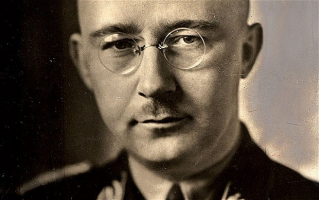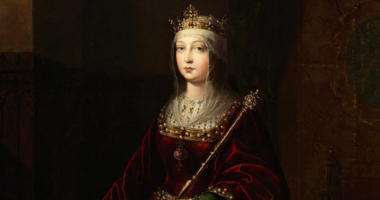Top 11 Interesting Facts about Margaret Thatcher
The first female prime minister of Europe, Margaret Thatcher was a member of the British Conservative Party and served as prime minister from 1979 to 1990. Her ... read more...full name is Margaret Hilda Thatcher. As the only British prime minister in the 20th century to be elected to three consecutive terms and, at the time of her resignation, the country's longest-serving leader since 1827, she accelerated the transition of the British economy from socialism to liberalism and rose to become the most recognizable politician in the country since Winston Churchill, both for her personality and her record of accomplishments. Here are the most interesting facts about Margaret Thatcher you should not miss below!
-
Thatcher came to the attention of the Conservative Party not long after graduating and was one of the first female presidents of the Oxford University Conservative Association. She ran for a seat in the House of Commons in the 1950 election as the youngest candidate, at the age of 24. Thatcher faced an uphill battle in the working-class area of Dartford, which leaned toward the opposition Labour Party, despite adopting the slogan "Vote Right to Keep What's Left." Despite losing, she received a lot of media coverage and acclaim for reducing the Labour majority by a third. She lost in Dartford once more in 1951, but after standing in the adamantly Conservative neighborhood of Finchley in north London in 1959, she eventually succeeded in winning a seat in Parliament.
She steadily advanced within the party, holding positions as parliamentary secretary in the Ministry of Pensions and National Insurance (1961–1964), chief opposition spokesman on education (1969–1970), and secretary of state for education and science (1970–1974) under Edward Heath's Conservative administration.
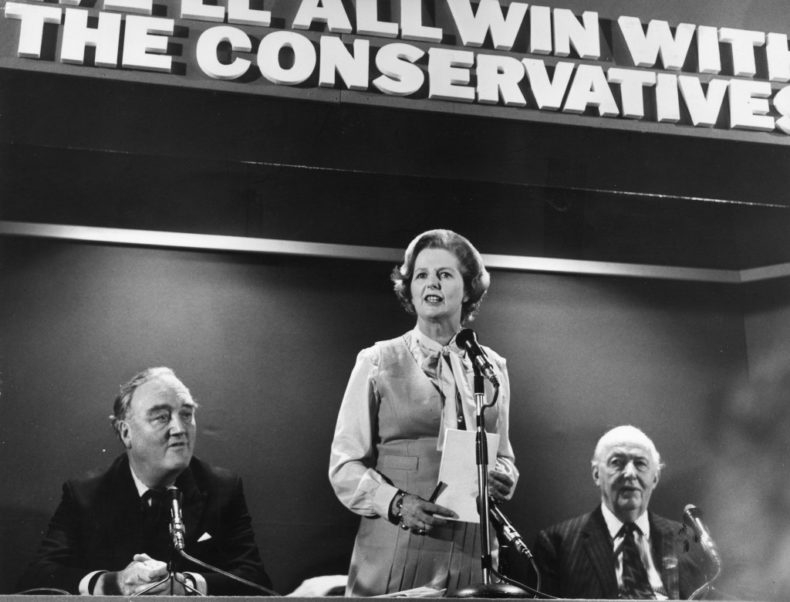
Photo: https://www.markpack.org.uk/ 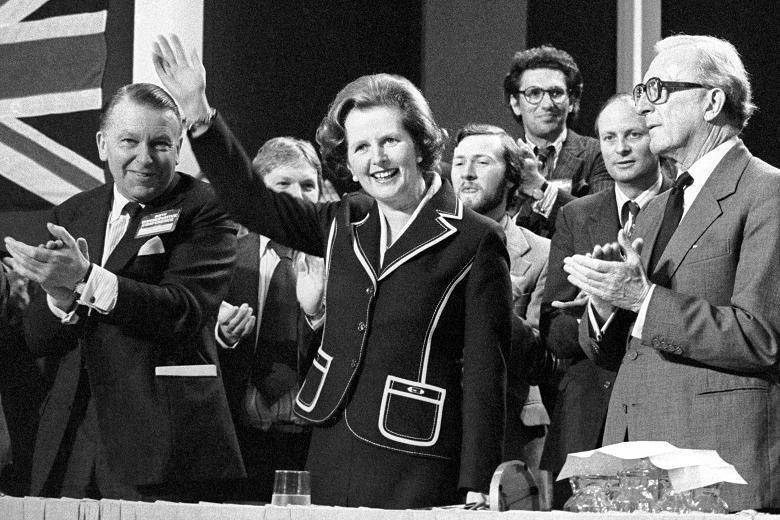
Photo: https://www.thetimes.co.uk/ -
From 1943 until 1947, Margaret Roberts attended Oxford University to study chemistry. Her first position was at Essex's BX Plastics. However, she was suggested as a potential parliamentary candidate to the Dartford Conservative Association by college friends. She traveled to London and accepted a new position with the food company J. Lyons & Co. in search of a more practical location from which to begin a campaign. Her job there focused on evaluating the quality of ice cream and cake fillings. She also looked into the chemical process of saponification, which is used to make soap.
She was a member of the group that developed a technique to boost the quantity of air injected into ice cream so that it could be produced more cheaply and with fewer ingredients. The innovation resulted in the creation of soft-serve ice cream, known as Mr. Whippy, and served from trucks throughout Great Britain. This is known as one of the most interesting facts about Margaret Thatcher.
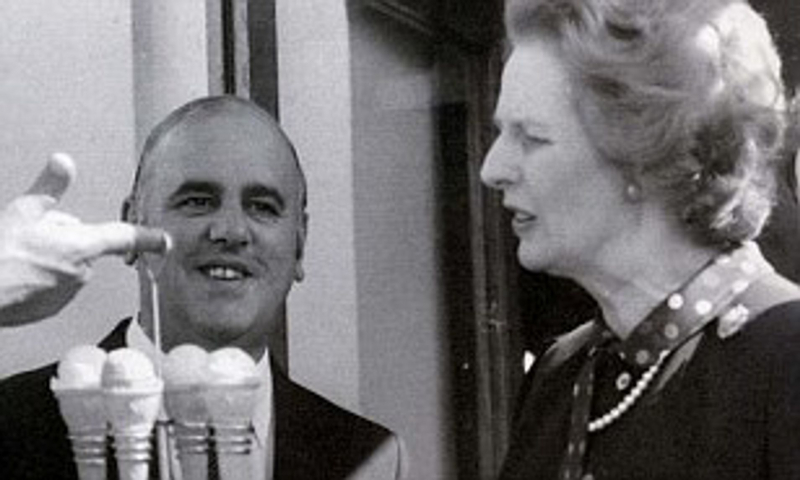
Photo: https://www.dailymail.co.uk/ 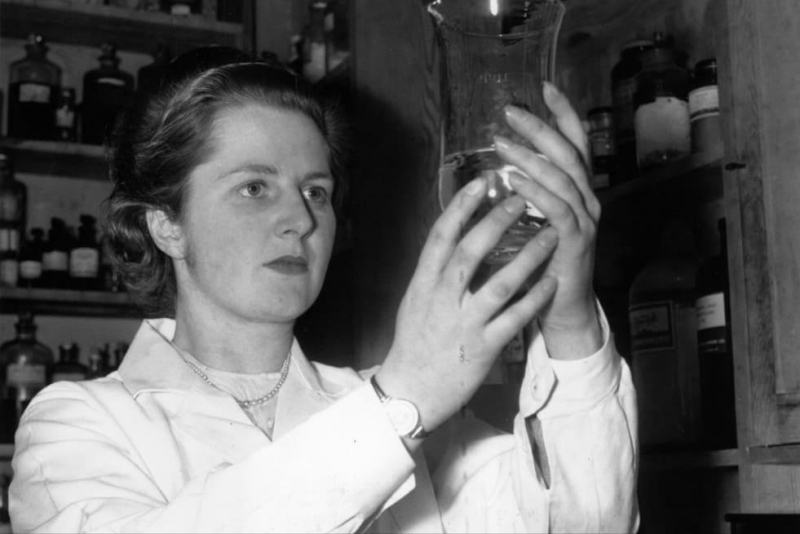
Photo: https://www.laitimes.com/ -
When Margaret Roberts wed Denis Thatcher in 1951, she changed her name to Margaret Thatcher. The couple welcomed twins Mark and Carol two years later. Six years later, in 1959, following ten years of defeats and infighting within the Conservative Party, Thatcher won her first election to Parliament.
She frequently advocated for the Conservative Party's goal of decreasing taxes for the average family, perhaps caving into societal expectations for a wife and mother. She remarked, "So once more, the married woman who goes to the butcher, grocer, and dry cleaner and then, when she finishes and wishes for a little joy, to the hairdresser, will find the prices going up" in opposition to the Labour Party's tax plan.
Thatcher honed her wit and created a fairly acerbic public persona as she spoke out against the Labour government, which ruled from 1964 to 1970.
During an interview, she attacked the government's classification and price regulation of consumer goods, saying, "One cannot regulate the price of a garment that has a mini-skirt in July, but a skirt four inches below the knee in January. The president of the Board of Trade probably wouldn't even notice the change, in my opinion." It was a dig at trade president Douglas Jay's seeming ignorance and a very sharp insult to British politics of the time.
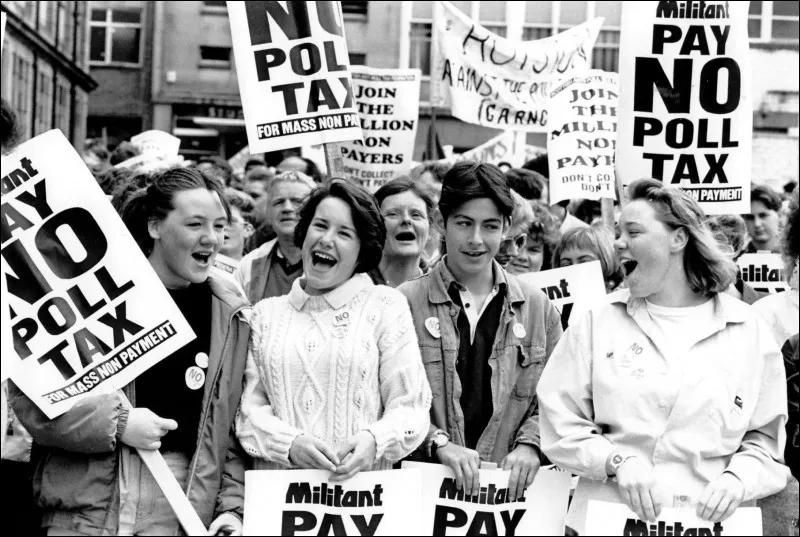
Photo: https://mwmblog.com/ 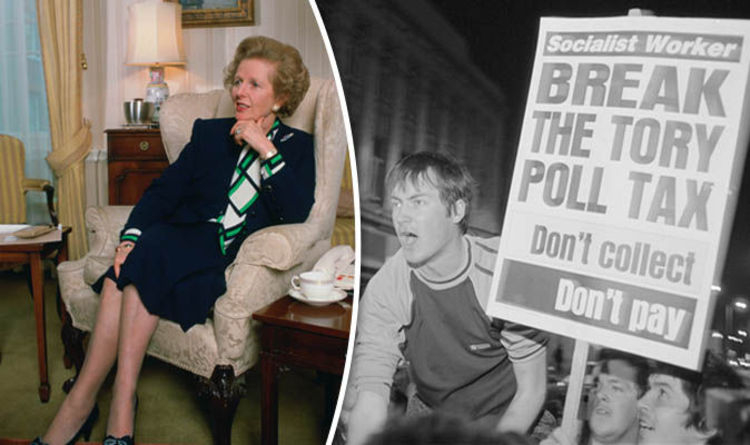
Photo: https://www.express.co.uk/ -
Thatcher was chosen to serve as secretary of education when the Conservatives won the election in 1970. The Treasury discontinued a 1940s-era initiative that offered free milk to youngsters aged 7 to 11 at their schools to save spending. Similar programs for older children had been stopped by the previous Labour government without much controversy, but Thatcher did not enjoy the same success.
According to Margaret Thatcher: Power and Personality, the press and Labour MPs were cruel to Thatcher, portraying her as a heartless miser who stole milk from little children. Labour PMs referred to Thatcher as a "reactionary cavewoman" and "the cruelest and spiteful member of a profoundly discredited government" in public hearings. One of the nicer insults to emanate from the streets and bars was "Thatcher, the milk snatcher."
Thatcher did not move from her position despite allowing free milk deliveries for malnourished pupils who were prescribed it. However, she felt uncomfortable inside because of how personal the jabs were, and she thought about leaving politics. She acknowledged that she had erred in The Path to Power, her autobiography: "I learned a great lesson. For very little political gain, I had earned the greatest amount of political contempt."
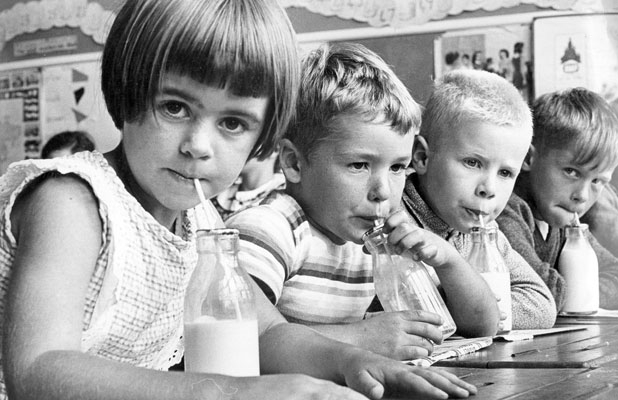
Photo: https://www.stuff.co.nz/ 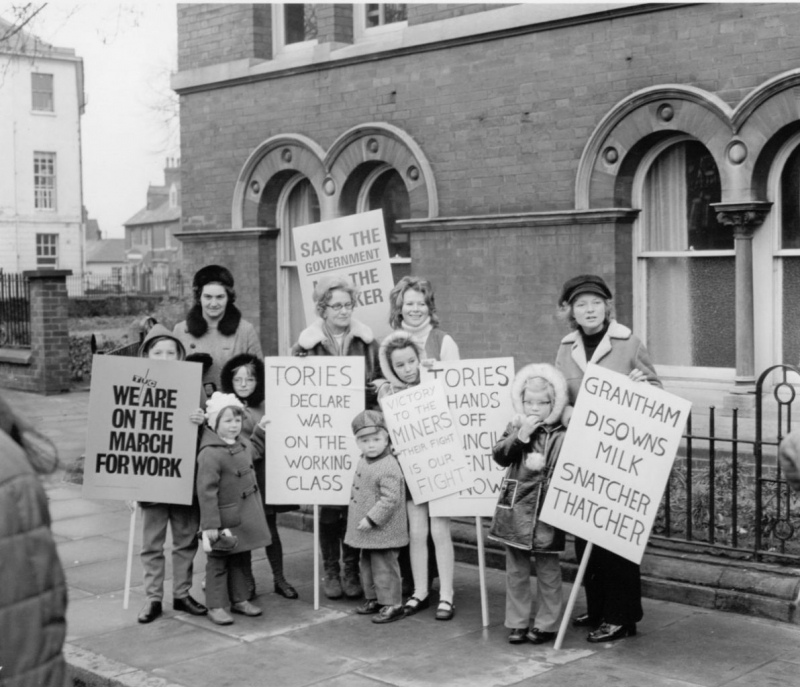
Photo: https://www.granthammatters.co.uk/ -
Thatcher was chosen as the Conservative Party's leader in 1974 after the Labour party regained power. She delivered a speech in January 1976 criticizing what she perceived as complacency in the face of the Soviet military build-up. According to her, "the Russians believe that their military might will more than offset their economic and social inadequacy. They are committed to using it to obtain what they desire from us.”
The head of the Reuters office in Moscow, Robert Evans, was trekking through a "miserably slushy" day in the city when he came across a copy of the Soviet army propaganda publication Krasnaya Zvezda. Evans translated its headline, "Zheleznaya Dama Ugrozhayet," from Russian to mean "Iron Lady Wields Threats." About how the Soviets viewed this criticism from a British politician, Evans wrote a little essay.
Thatcher delighted in the title. She addressed conservatives in a speech a week later. "I come before you tonight, the Iron Lady of the Western world, in my Red Star evening gown, with my face lightly made up and my fair hair gently waved". She was known as the "Iron Lady" throughout her professional life, which is one of the most interesting facts about Margaret Thatcher.
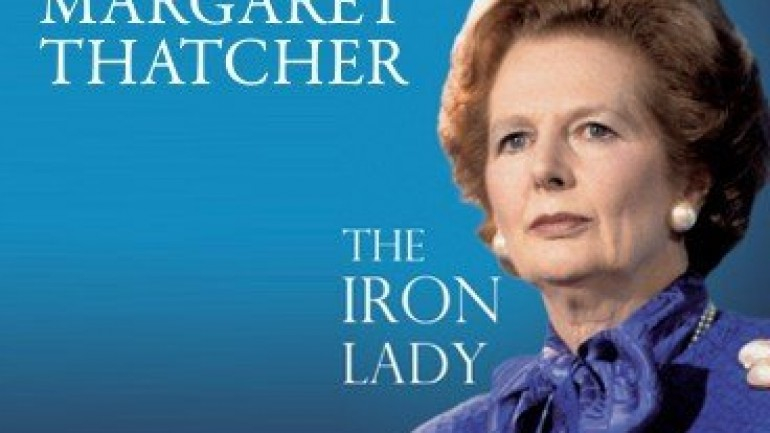
Photo: https://documentaryheaven.com/ 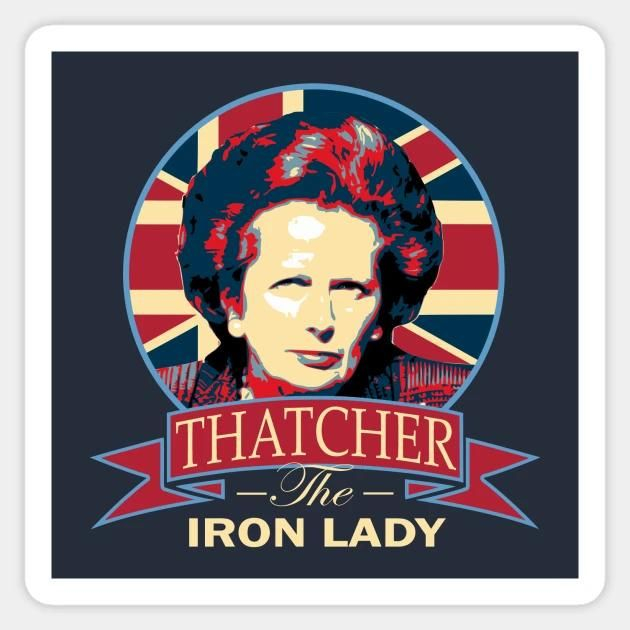
Photo: https://www.teepublic.com/ -
Thatcher became the UK's first female prime minister in 1979 after the election of a Conservative government. One of the main tenets of the Thatcherian school of neoliberalism was the privatization of state-owned enterprises.
She stated at a gathering of young conservatives in 1976 that "our goal is to provide the kind of economic background which permits private initiative and private enterprise to flourish for the benefit of the consumer, employee, the retiree, and society as a whole."
The UK had accumulated a sizable portfolio of government-owned businesses in the energy, manufacturing, telecommunications, and transportation industries after World War II. British Cable & Wireless, British Telecom, Britoil, British Gas, British Steel, British Petroleum, and British Airways were all sold off under Thatcher's presidency.
Two analysts estimated the combined value of the assets sold between 1979 and the early 1990s to be £45 billion in 1995. Today, that amount would be equivalent to roughly £87.16 billion, or $115 billion.
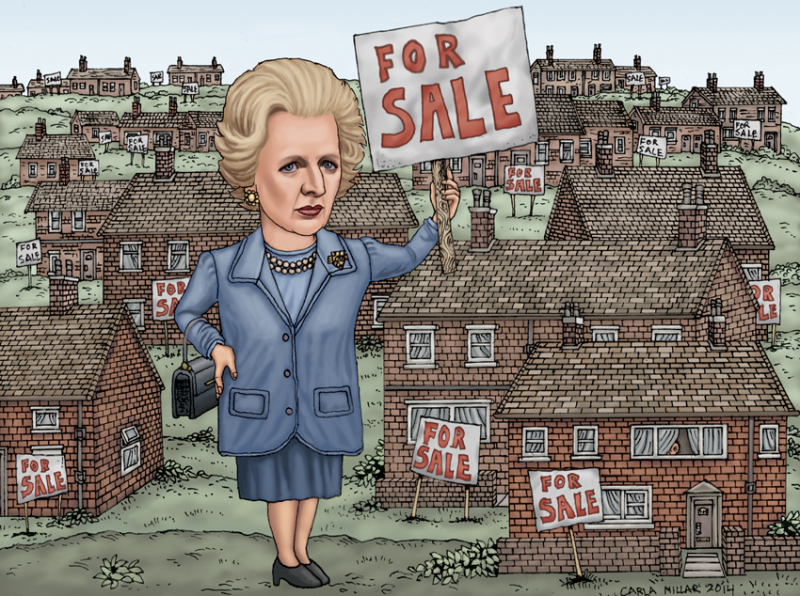
Photo: https://conservativehome.com/ 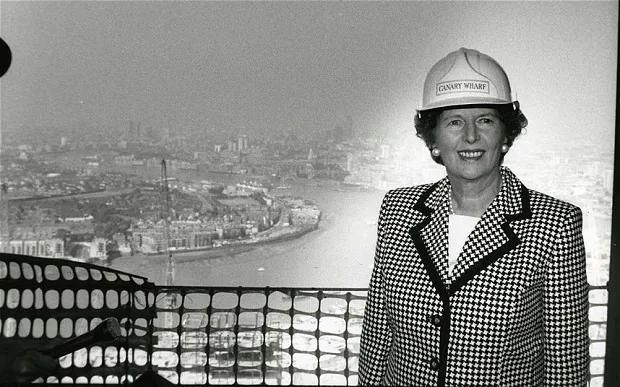
Photo: https://www.telegraph.co.uk/ -
Argentina's military government invaded the Falkland Islands, which the British claimed as a colony, in 1982 due to long-standing territorial disputes. The 10-week Falkland Islands War began after Thatcher dispatched British soldiers and vessels. 323 people were killed when she gave the order for the Navy to sink the Argentinean cruiser ARA General Belgrano. This represented half of Argentina's wartime casualties.
Thatcher made an election-themed appearance on the BBC news program Nationwide a year later. British citizens were invited to ask Thatcher questions live on camera. Diana Gould, a primary school teacher in Cirencester, questioned Thatcher about the Belgrano's sinking.
“Why did you give the order to sink the Argentine battleship Belgrano when it was beyond the exclusion zone and actively sailing away from the Falklands?” Gould queried. Thatcher reaffirmed, "When it was sunk, it was a risk to our ships." But Gould steadfastly insisted that it was not in an area the British had considered unsafe for ships by way of an "exclusion zone."
Thatcher responded, "I think it could only be in Britain that a prime minister was accused of sinking an enemy ship that was a danger to our navy, when my main motive was to protect the boys in our navy," and continued, "One day, all the facts will be revealed and they will indicate as I have said." Thatcher was agitated as she made her remarks.
Thatcher and her husband immediately exited the studio following the interview. The BBC, according to Denis Thatcher, is "a nest of long-haired Trots and wooftahs."
Source: https://www.youtube.com/ 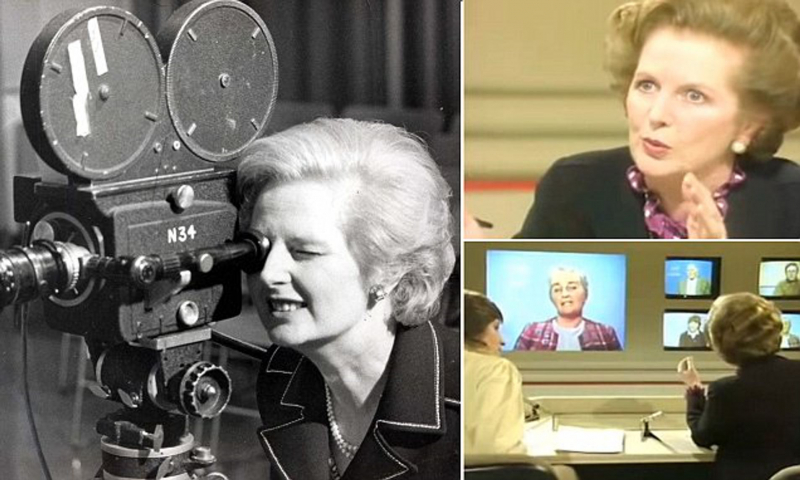
Photo: https://www.dailymail.co.uk/ -
When it comes to prime minister rankings, Thatcher has done well. In a 2019 YouGov survey of the general population, she came out on top; 21% of respondents chose her as the UK's best leader since 1945. Thatcher placed second in a 2010 survey of experts that included just post-war prime ministers, according to rankings made by historians and academics. Thatcher was named fourth most successful among the 20 prime ministers of the 20th century in a 2004 study by the University of Leeds. The welfare state was created by Clement Attlee, who served as prime minister from 1945 to 1951 and attempted to destroy it.
When Thatcher was in office, the British public had a lower opinion of her. During her time as prime minister, the public's satisfaction with her job performance was around 40% on average, while it was at 54%. She was unsurprisingly least well-liked in working-class areas like the Midlands. Her support peaked at 59% in June 1982 following the British forces' expulsion of the Argentines from the Falkland Islands and plummeted to 20% in March 1990 following the introduction of a "poll tax."
She paid the price for that poll tax. Every adult in a region paid the tax in one lump sum to cover the cost of local government services. The result was riots. Thatcher, in typical Thatcher fashion, would not budge. Thatcher gave up her position as premier in 1992 and departed Parliament rather than finish the struggle for the position of leader inside her party.
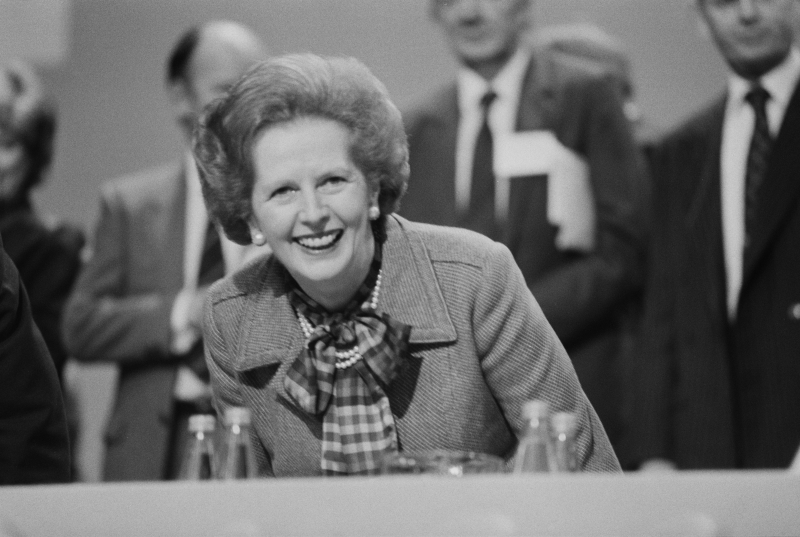
Photo: https://www.thetimes.co.uk/ 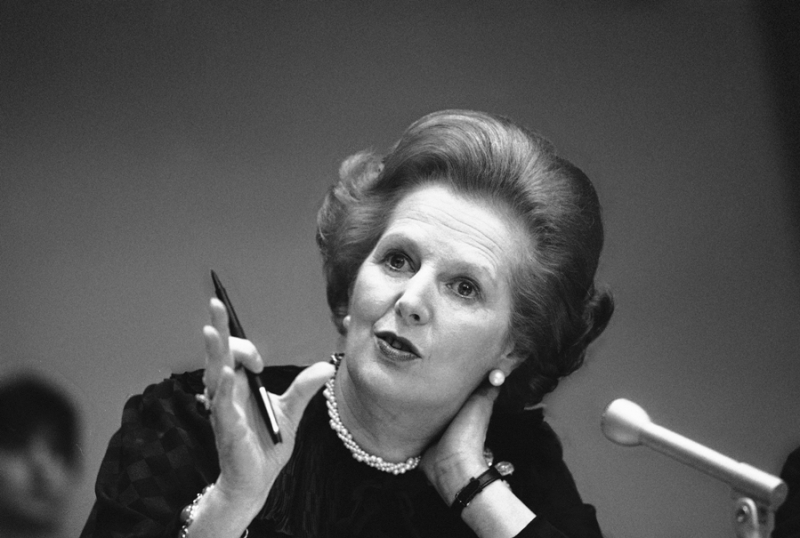
Photo: https://evnoiagroup.com/ -
Few foreign leaders, whose administrations overlapped most of Thatcher's premiership, had tenures as parallel as Thatcher and U.S. President Ronald Reagan. Both were harsh opponents of the Soviet Union when they ran for governor and were free-market conservatives. Reagan's firing of striking traffic controllers was paralleled by Thatcher's reluctance to concede to a coal miners' strike. They were devoted friends and comrades. Reagan was persuaded by Thatcher to cooperate with Mikhail Gorbachev, the new Soviet leader.
Thatcher had stopped speaking in front of groups when Reagan passed away in 2004 as a result of many strokes. She delivered a prerecorded video eulogy during Reagan's state funeral per the former president's request. She claimed that Reagan "sought to mend America's broken spirit, to rebuild the power of the free world, and to liberate the slaves of communism." These were risky and difficult causes to advance. She sat next to Gorbachev at the funeral.
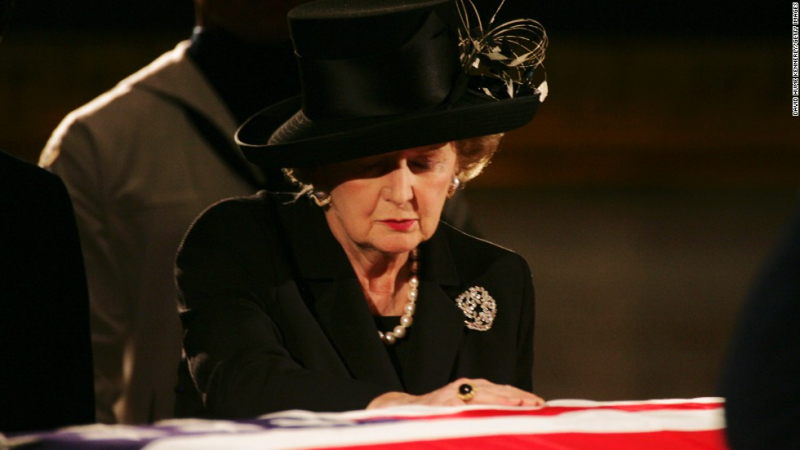
Photo: http://hotcore.info/ 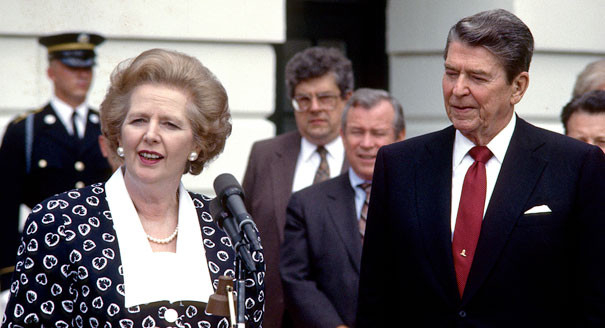
Photo: https://www.politico.com/ -
A coup headed by general Pinochet resulted in the overthrow of Chile's socialist government in 1973. His government murdered at least 2279 individuals and tortured another 27,255 as it subdued the nation. He might have also made money off of embezzlement, arms trades, and tax avoidance. Pinochet resigned as the Republic's self-declared leader in 1990 to become a senator-for-life.
Thatcher was furious at the Labour Party government's arrest of Pinochet, who had been seen as an ally against the spread of communism in Latin America and who had given information to Thatcher's war room during the Falklands War, even though they had never met while either was in power.
Thatcher stated in 1999, "We will fight on for as long as it takes to see Senator Pinochet returned safely to his home country. I don't know when or how this tragedy will finish. The British continue to value friendship and loyalty."
In March 2000, the UK allowed Pinochet to return to Chile for medical reasons. He was never put on trial for violating human rights. Thatcher sent him a bottle of alcohol while he was in the UK on house arrest along with a note that said, "Scotch is one British institution that will never fail you down."
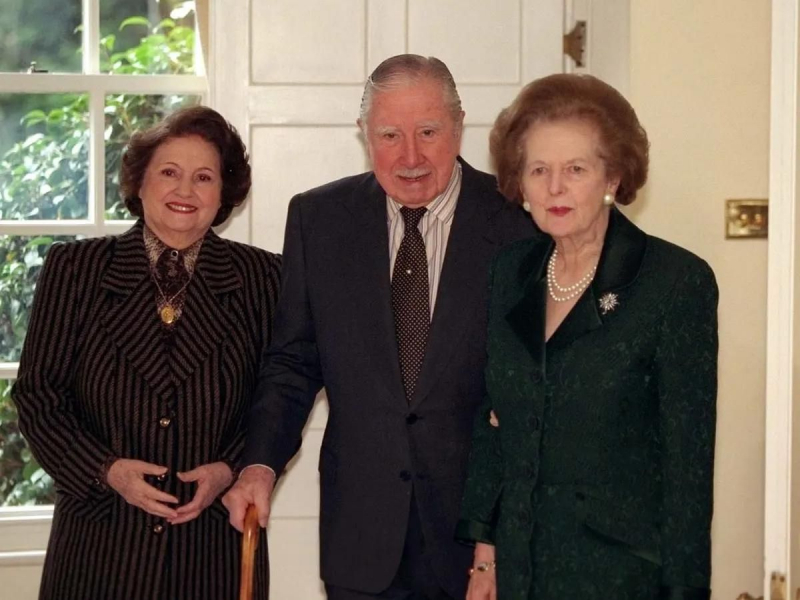
Photo: https://www.theguardian.com/ 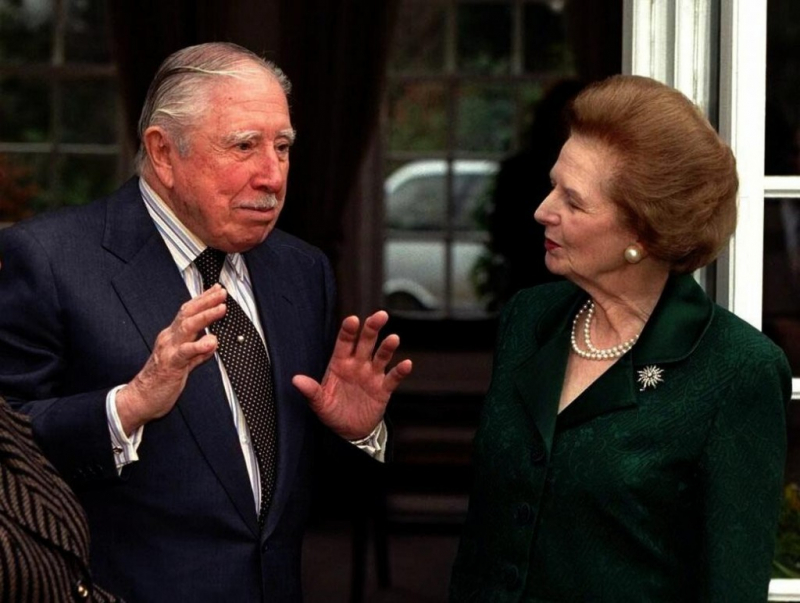
Photo: https://teifidancer-teifidancer.blogspot.com/ -
The last of these interesting facts about Margaret Thatcher is she narrowly escaped an IRA assassination attempt. In Brighton, England, on October 12, 1984, the Grand Hotel played host to the Conservative Party's annual conference when a time bomb detonated. Patrick Magee, a member of the Irish Republican Army, had planted the explosive weeks earlier. The prime minister was in the next room and was unhurt, but the blast severely destroyed the bathtub in Thatcher's suite. Five persons were murdered by the blast, including a parliamentarian.
Thatcher refused to leave immediately for London as requested by her security team, insisting on giving her speech as scheduled barely hours after the bombing. She informed her fellow party members, "This attack has failed, and all attempts to undermine democracy by terrorism will fail. The fact that we are gathered here right now, startled but composed and determined, is a sign."
In 1986, Thatcher disbanded the Greater London Council after a battle with Ken Livingstone's Labour-led administration in London. Few facets of British life had avoided Thatcher's second term's most comprehensive alteration of the country since the Labour Party's postwar reforms.
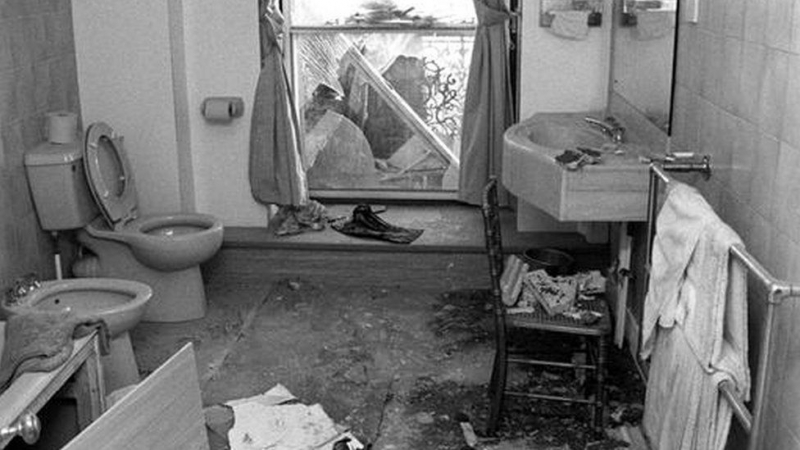
Photo: https://www.bbc.com/ 
Photo: https://www.cbc.ca/





























